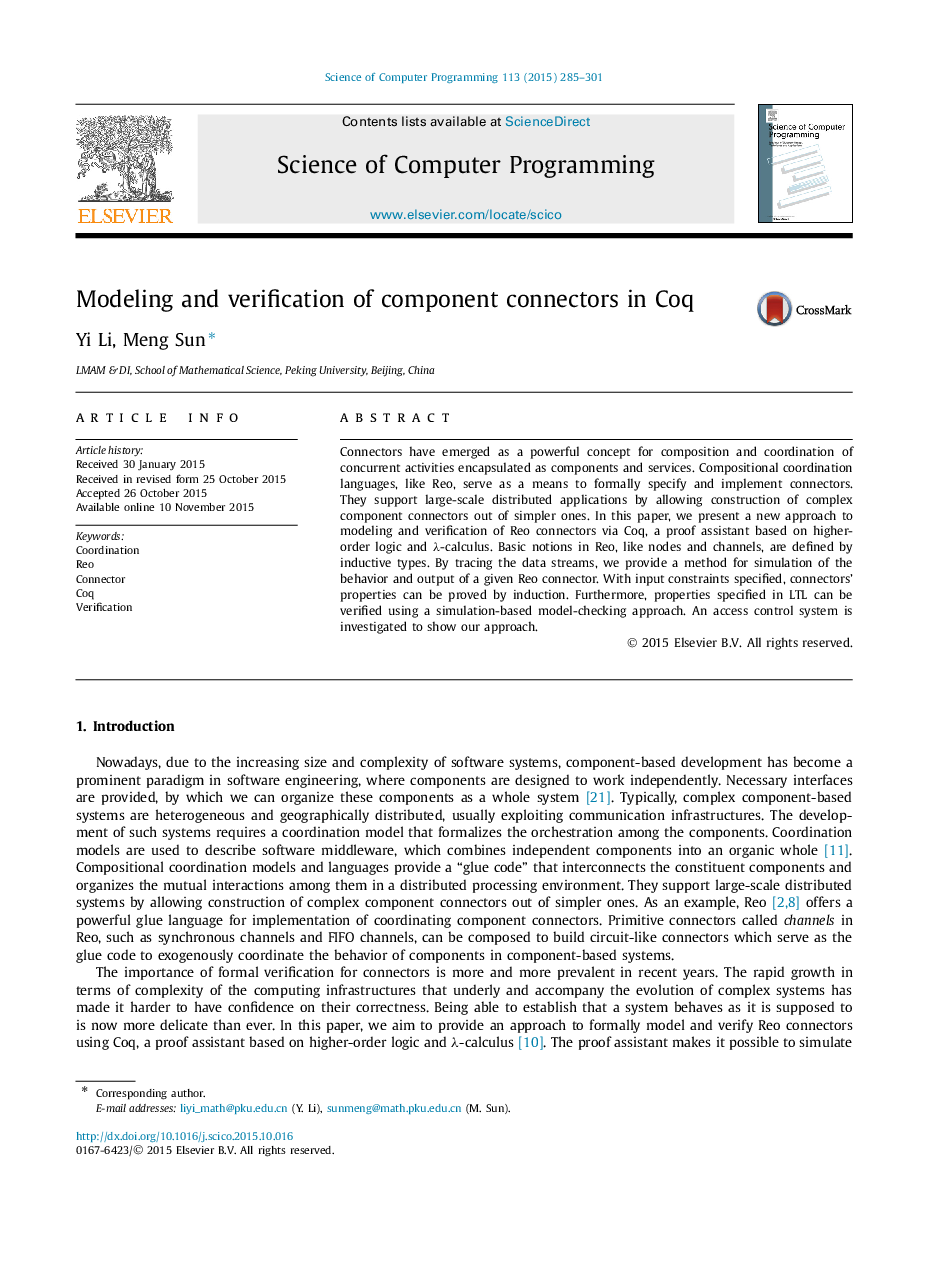| Article ID | Journal | Published Year | Pages | File Type |
|---|---|---|---|---|
| 433222 | Science of Computer Programming | 2015 | 17 Pages |
•We present a new approach to modeling of Reo connectors via the Coq proof assistant.•We propose a simulation-based approach to verify connectors' properties specified in LTL.•We investigate an access control system to show the usefulness of the approach.
Connectors have emerged as a powerful concept for composition and coordination of concurrent activities encapsulated as components and services. Compositional coordination languages, like Reo, serve as a means to formally specify and implement connectors. They support large-scale distributed applications by allowing construction of complex component connectors out of simpler ones. In this paper, we present a new approach to modeling and verification of Reo connectors via Coq, a proof assistant based on higher-order logic and λ-calculus. Basic notions in Reo, like nodes and channels, are defined by inductive types. By tracing the data streams, we provide a method for simulation of the behavior and output of a given Reo connector. With input constraints specified, connectors' properties can be proved by induction. Furthermore, properties specified in LTL can be verified using a simulation-based model-checking approach. An access control system is investigated to show our approach.
